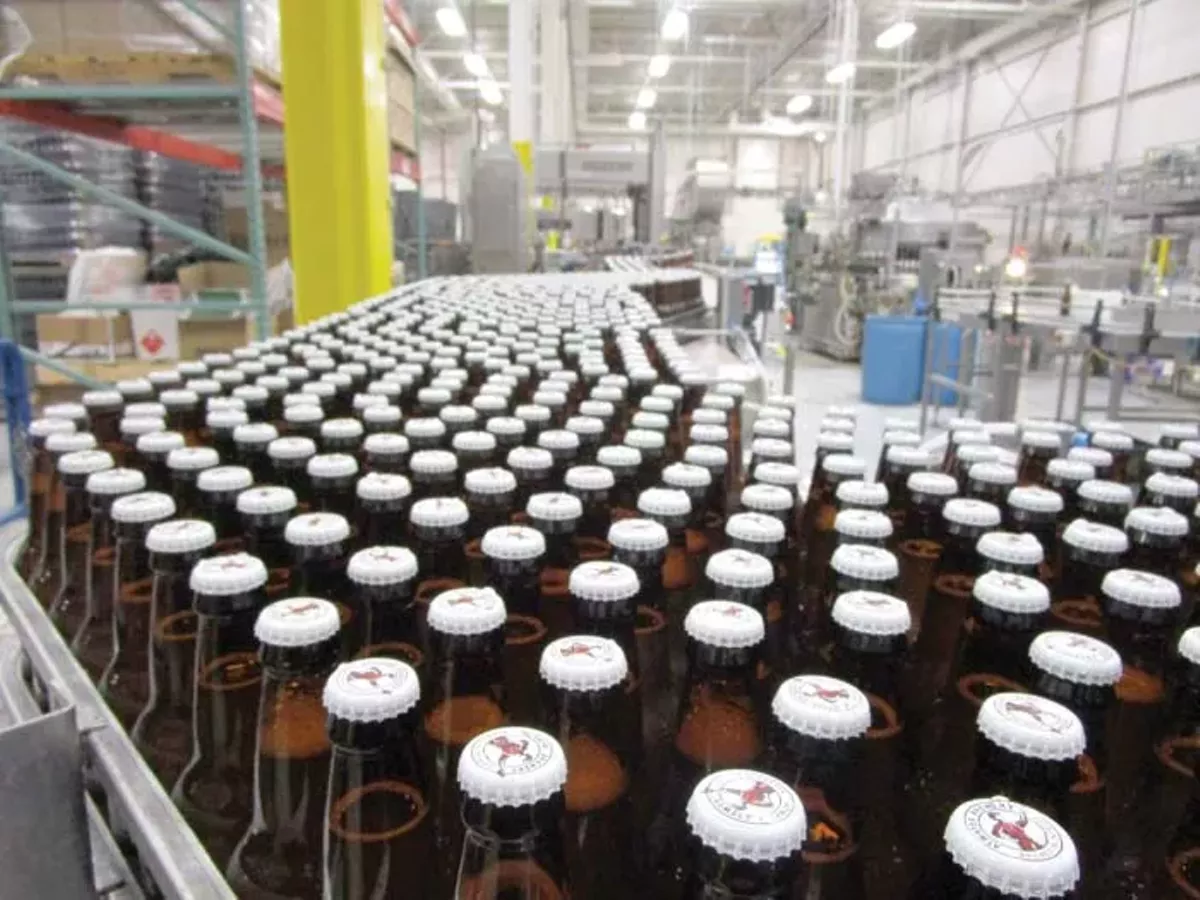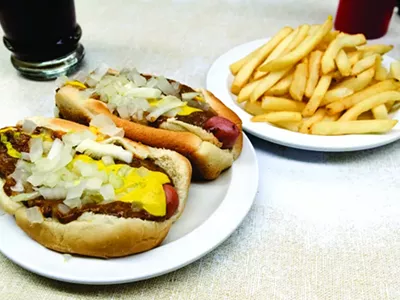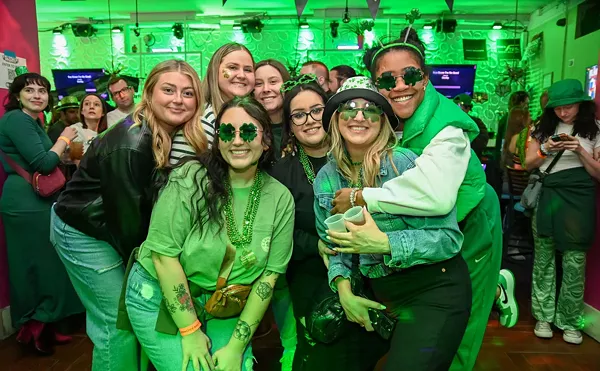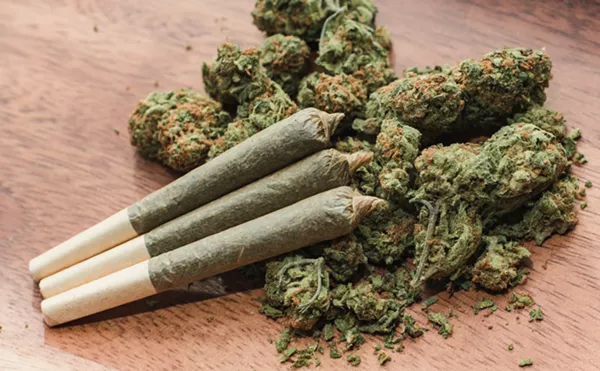If Detroit's long and illustrious brewing history could be compared to a play, the first act ended in 1985 with the closing of the 135-year-old Stroh's plant on Gratiot Avenue. Following an intermission of seven years, the second act began rather modestly in 1992 when the first brewpub license under Michigan's new law allowing them became active. Customers of Midtown's Traffic Jam and Snug were soon enjoying Canfield Ale, an amber brewed in the parking lot by Tom Burns, the lawyer-brewer most responsible for getting the brewpub law passed. In the ensuing decade, Traffic Jam and Snug was joined by three other small breweries turning out flavorful beers: Motor City Brewing Works (founded in 1995), Atwater Brewery (1997), and the Detroit Beer Co. (2003).
Today, with the ongoing expansion of Atwater and the addition of three breweries to the city, including Brew Detroit, a $10 million, 68,000-square-foot contract brewing facility in Corktown, Detroit beer seems poised to enter an even bigger and brighter third act.
Thinking big
"Detroit is one of the last developing parts of the state in terms of beer," says Jason Schrider, director of operations for Atwater, whose products, including Dirty Blonde Ale and Vanilla Java Porter, are ubiquitous on area store shelves and in major venues such as Comerica Park. "But the city's now growing in every way, and there's a lot of new folks coming in. The audience is returning, and that will help fuel more small breweries and pubs."
Today's Atwater, however, is thinking anything but small, especially since a corporate reorganization saw investor Mark Rieth take the helm in 2005.
"We're in a state of hyper growth," says Schrider. "We're very sales-oriented, and out-of-state expansions are at the forefront for us."
Among Atwater's recent achievements are the completion of a new 100,000-barrel production brewery in Austin, Texas, and the introduction of a distillation program, which will produce Atwater spirits including whiskey, rum, vodka, and gin in the company's facility on Joseph Campau. But Atwater beer — now distributed in 11 states — will remain the focus, according to Schrider: If you include its contract brewing operations, Atwater produced 40,000 barrels in 2014, making it the largest Detroit brewery by volume and the third largest in the state, behind only Bell's and Founders.
Corktown comes alive
Part of what makes it all possible for Atwater is Brew Detroit, a large-scale operation that opened in a former ball bearing plant at the edge of Corktown in 2014. Now it's busy producing and packaging a number of Atwater's brands as well as Kid Rock's label, Badass American Lager. The 100,000-barrel brewhouse, manned by former Atwater brewer Hazen Schumacher, among others, is capable of producing up to 70,000 barrels a year, among which will soon be a canned edition of Motor City Brewing Works' flagship beer, Ghettoblaster Mild Ale.
Earlier this year, Brew Detroit added a 7,000-square-foot public tap room to feature 10 rotating drafts of smaller batch beers, brewed on the two-barrel pilot system by director of retail operations Erika Brockberg, often in collaboration with visiting brewers from around the area.
"We originally were conceived as a collaborative facility to contract brew other labels and help them to continue growing," says Brockberg. "The tasting room is kind of like a bonus. With the craft beer industry exploding, everyone wants to go somewhere new and try something different all the time. We had the space, the location, and some talented brewers, so the tap room came out of this demand."
Just a block from one of the city's largest brewing operations is one of its smallest: Batch Brewing, the long-awaited nanobrewery that opened in 2015 following both a successful Kickstarter campaign and a $50,000 award from Comerica Bank's Hatch Detroit contest. Batch sports a seven-and-a-half-barrel brewhouse with several four-barrel fermenters. The brewery's small size allows for a diversity of offerings, including beers such as Son of a Batch West Coast IPA, Handsome Stranger Hibiscus Saison, and the Four Hops, a brew made with four Michigan-grown hop varietals, the proceeds from which are donated to the Motown Museum.
"Our beer menu is continuously changing and evolving," says Patrick Ahrens, a brewer at Batch. "We pay a lot of attention to our yeast health, water composition, and sanitation practices, really focusing on the small details that can be left behind in large commercial brewing so we can just keep making better beer. The goal is high-quality beers that are good and unique."
Batch's building — which years ago housed the Porter Street Station Bar and Grill — required extensive rehabbing by co-founders Stephen Roginson and Jason Williams, but the clean, comfortable space now includes a modern kitchen serving a variety of specialty sandwiches and other plates to go with the beers. As for what's next, Williams leaves that up to his customer base.
"We hope to be bottling by the end of the summer, but you have to let the business dictate where you go," he says. "Having our beer on tap on other places is a goal, so if business says we need to do this, those are the steps we'll take."
The Canfield beer corridor
Over in Midtown, West Canfield Street is home to Detroit's oldest brewing establishments, Traffic Jam and Snug and Motor City Brewing Works, as well as its newest, Jolly Pumpkin Pizzeria and Brewery, which opened in April amid much fanfare. It's the third cafe location for the nationally acclaimed brewery headquartered in Dexter, just west of Ann Arbor, and brings something entirely new to a city once dominated by German lagers.
"Sour beer," says Dave Horchem, general manager. "We're bringing sour beers from Jolly Pumpkin that are not always easy to find here. Right now we have 12 sours on tap, and I don't think anyone else in Detroit has that."
Sour ales are typically left to ferment by "wild," or naturally occurring, yeast, imparting a unique, funky characteristic to the brew. This technique is most closely associated with Belgian brewers, but in a 2010 New York Times blind tasting panel, Jolly Pumpkin's Oro de Calabaza Golden Ale was chosen as the best Belgian-style ale, ahead of a number of examples from Belgium itself. Do Detroiters like this style?
"Sour beers are a niche within a niche. We get fans of sours who come here seeking them out specifically, as well as people who have no idea what sour beer is and you have to kind of teach them," says Horchem. "But we're busy all the time."
A few doors down, Traffic Jam and Snug produces beers in a way unique from other Michigan breweries: on the same equipment it uses to make its own cheese. The celebrated restaurant's previous owner, Ben Edwards, pushed for the legalization of brewpubs in Michigan and under current owners Carolyn Howard and Scott Lowell it still serves five different drafts brewed in-house.
"Ben served Bell's beer in the 1980s when it was still new, and seeing this different, handcrafted product delivered by the guy who made it inspired him to think, 'Well, shoot, I can do that too,'" says Howard, who started working in the restaurant in 1984. "It's been a nice part of our business, which is focused on creating things today to be enjoyed tomorrow, whether it's grown on our rooftop garden or made on our dairy and beermaking equipment."
And across the street, the quirky Motor City Brewing Works building rounds out what beer tourists have begun calling the "Canfield Beer Corridor," turning out Motor City Pale Ale, Nut Brown Ale, Honey Porter, and Ghettoblaster Mild Ale, and other beers from its 10-barrel brewhouse, as well as, since the 2007 addition to the tap room of a kitchen, brick oven pizzas that routinely win raves. Owner John Linardos, who with partner Steve Rouse took over the original brewing operation from Traffic Jam's Tom Burns in the mid-1990s, shows no signs of slowing down, expanding Motor City's production even further through a pending arrangement with Brew Detroit.
"Things are a lot more competitive now, and it's a challenge to keep our retailers supplied," he says. "The bulk of our business is here, but with Brew Detroit, that gives us an increased capacity so we can grow statewide and keep areas supplied that we had to pull out of because we couldn't keep up."
The future of Detroit beer
Regardless of the size or focus of the brewery, those fueling Detroit's beer renaissance all agreed the local industry has a lot of room to grow — and believe that it will.
"Brew Detroit is making amazing beer, Motor City has grown from a pioneer in the industry to a staple product everywhere, and Detroit Beer Co. is working on brewing some things very different from what they've brewed in the past," says Batch's Ahrens. "I'm really optimistic about the beer scene in Detroit."







